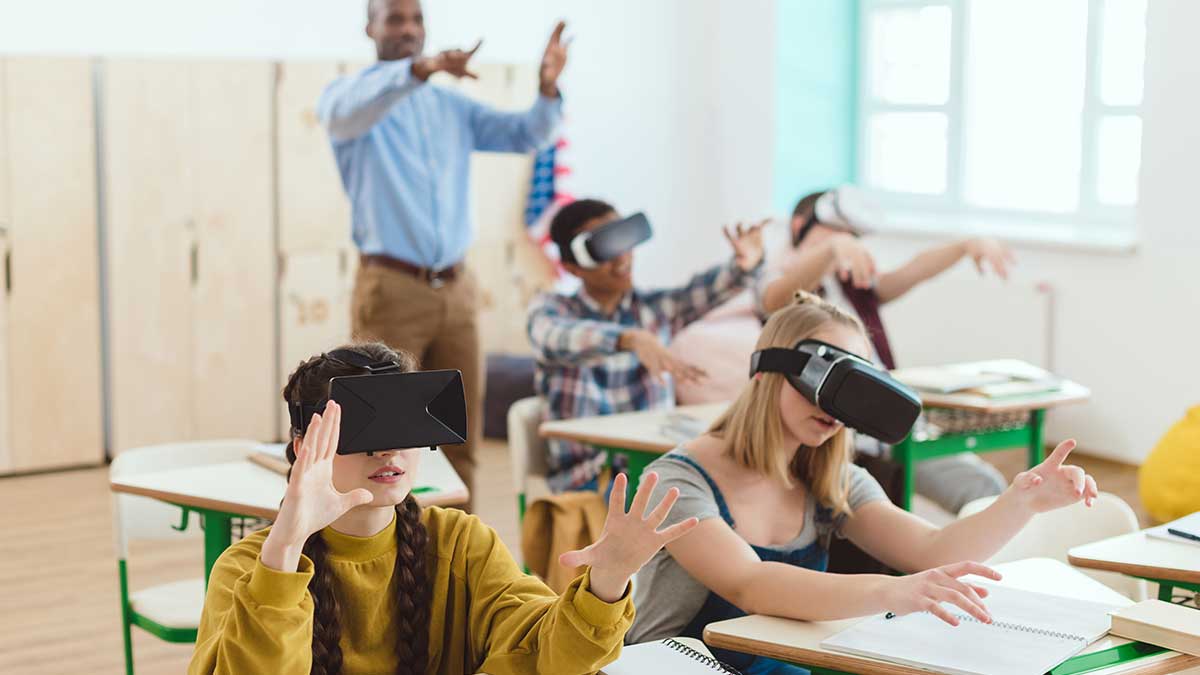
Advancing Access Control Technology
Safety in schools is paramount, and technology is playing a pivotal role in enhancing security measures. Schools are increasingly implementing advanced access control technologies to monitor and restrict entry into their premises.
One notable example comes from the Lakewood School District in New Jersey, which has introduced artificial intelligence-based screening. This technology allows students to enter the school without the need to remove personal belongings, reducing the screening process from 45 to just 15 minutes. With a higher detection rate than traditional metal detectors, Lakewood’s approach sets a new standard for student safety.
Access control measures have gone beyond monitoring entry; they now include systems that help detect prohibited objects within school premises. These proactive steps are transforming school security, ensuring a safer environment for both students and staff.
Tech-Centric Learning Spaces
The traditional classroom is evolving into tech-centric hubs that foster mobility, collaboration, and hands-on learning experiences. Schools are recognizing the value of creating innovative spaces that encourage students to explore technology and embrace digital tools.
STEM labs, esports arenas, and broadcasting studios are becoming increasingly popular in modern schools. For instance, Steubenville City Schools in Ohio is investing in a $12 million STEM building, creating an environment that promotes science, technology, engineering, and math education. Meanwhile, Indiana’s Greensburg Junior High School is introducing tech, engineering, and math labs that equip students with design and robotics tools.
The use of virtual reality is expanding as well. Chandler Unified School District in Arizona is incorporating virtual reality lessons into its curriculum to enhance the gaming experience. This approach fosters technical skills, as well as valuable soft skills such as teamwork, decision-making, and communication.
Flexible Learning Spaces
In 2023, the concept of the untethered classroom is gaining momentum. This approach transforms traditional classrooms into flexible spaces where students are not bound by stationary technology. In schools like the Lakota Local School District in Cincinnati, the innovation lab exemplifies the potential of untethered learning.
Mobile tech in these spaces empowers students and teachers, enabling collaboration, individualized instruction, and dynamic learning experiences. As educators shift towards student-centered teaching, the untethered classroom provides the necessary flexibility to encourage innovative teaching methods.
Audiovisual technology is a key driver of this transformation, making it easier for educators to create engaging and interactive learning environments.
Virtual and Augmented Reality
Virtual and augmented reality (VR and AR) are no longer futuristic concepts in education; they are becoming a standard part of the learning experience. Schools are embracing these technologies to immerse students in subject matter in innovative ways.
In the Lakota Local Schools’ innovation lab, students use VR technology like Merge Cubes to interact with 3D virtual objects, providing hands-on learning opportunities that were previously unimaginable. Other school districts, such as the Compton Unified School District in California and Colorado Springs School District 11 in Colorado, are also introducing VR experiences to stimulate student interest and foster creative problem-solving.
The future of learning is marked by technologies that inspire and engage students, making learning a dynamic and interactive journey. VR and AR are becoming accessible to a wider range of schools, ensuring that learners from all backgrounds can benefit from these immersive technologies.
As we move into 2023, it’s clear that education is experiencing a tech-driven evolution, with schools exploring innovative solutions to provide a richer and more interactive learning experience. Ed tech is no longer a luxury but an essential tool for shaping the future of education.





